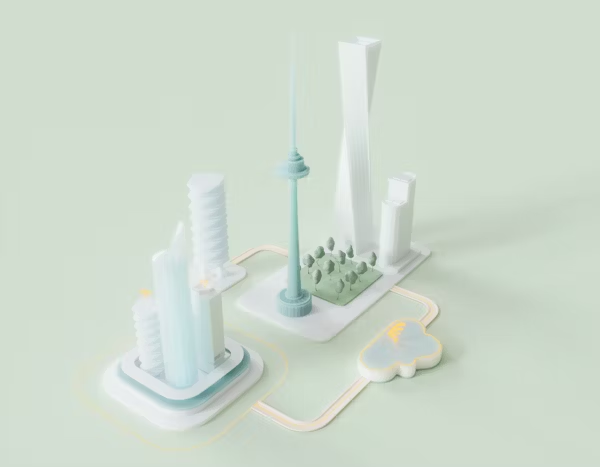
Newsletter Subscribe
Enter your email address below and subscribe to our newsletter


Enter your email address below and subscribe to our newsletter

The Vancouver housing market is showing early signs of a rebound in 2023. As inflation cools and buyer confidence returns, home prices across the Greater Vancouver Area (GVA) have started to trend upwards again. According to the Real Estate Board of Greater Vancouver (REBGV), the average home price in April 2023 was $1,295,266. That’s still 3.4% lower than a year ago, but a notable 2.2% increase from just a month earlier.
Sales volume is also improving. In April, 2,741 homes were sold across Greater Vancouver—down 16.5% year-over-year, but trending higher compared to the quiet winter months. The market remains tight due to low inventory, which is helping to push prices up despite higher interest rates.
As of April 2023, the benchmark price for all residential properties in Metro Vancouver stands at $1,170,700. That’s a 7.4% drop compared to April 2022 but a 2.3% jump from March. While new listings in April fell by 29.7% compared to last year, the number of homes on the market is still far below what’s considered a balanced level.
Here’s a quick snapshot of how average home prices and total monthly sales evolved in Vancouver during the first four months of 2023:
| Month | 📈 Avg. Home Price | 📊 Sales Volume |
|---|---|---|
| January 2023 | $1,111,400 | 1,030 homes |
| February 2023 | $1,123,400 | 1,808 homes |
| March 2023 | $1,143,900 | 2,535 homes |
| April 2023 | $1,170,700 | 2,741 homes |
📌 Observation: Prices in Vancouver rose steadily from January to April 2023, alongside a sharp increase in home sales—indicating growing buyer confidence despite high interest rates.
| Category | Average Price | Units Sold | New Listings | Total Listings |
|---|---|---|---|---|
| Greater Vancouver | $1,170,700 | 2,741 | 4,307 | 8,790 |
(Source: Real Estate Board of Greater Vancouver)
Despite broader market declines compared to last year, some Vancouver-area districts are seeing detached home prices climb quickly. Limited inventory, strong demand, and community appeal are driving month-over-month gains.
Curious where detached home values are rising fastest in Vancouver? These neighbourhoods saw the highest year-over-year appreciation in 2023:
🏠 Avg. Price: $1.89M
🔺 Growth: +7.8% YoY
🏠 Avg. Price: $3.62M
🔺 Growth: +6.5% YoY
🏠 Avg. Price: $3.48M
🔺 Growth: +6.2% YoY
🏠 Avg. Price: $2.97M
🔺 Growth: +5.9% YoY
🏠 Avg. Price: $3.35M
🔺 Growth: +5.6% YoY
📌 Observation: East Vancouver led the city in detached home price appreciation, while Westside neighbourhoods like Dunbar and Kitsilano saw steady upscale growth.
| Area | Benchmark Price | 1-Month Change |
| Bowen Island | $1,456,300 | +8.3% |
| Tsawwassen | $1,473,200 | +7.2% |
| Ladner | $1,341,900 | +7.1% |
| Sunshine Coast | $917,000 | +6.6% |
| Squamish | $1,635,700 | +6.0% |
| Whistler | $2,519,200 | +5.8% |
| Pitt Meadows | $1,220,900 | +4.2% |
| Burnaby South | $2,145,800 | +3.6% |
| Maple Ridge | $1,219,600 | +3.4% |
| Lower Mainland | $1,702,200 | +3.2% |
REBGV’s Residential Market Forecast suggests that home sales will finish the year about 2.6% below 2022 levels. That might sound like a slowdown, but considering the aggressive interest rate hikes over the past year, it’s a relatively resilient outcome.
One key driver of price stability is immigration. With population growth rising and housing supply still lagging, demand is expected to remain strong. REBGV forecasts the average home price to hover around $1.2 million by the end of 2023, representing a 1.4% annual increase.
However, risks remain. If a recession materializes later in 2023, we could see a decline in both sales and prices due to job losses, tighter lending, and economic uncertainty.
Based on CREA forecasts and market data, here’s how home prices and sales volumes are expected to trend across Canada from mid-2023 to the end of 2024:
🏠 Avg. Price: $710,000
📊 Sales: ~110,000 homes
📌 Market begins recovery as interest rate hikes slow.
🏠 Avg. Price: $725,000
📊 Sales: ~122,000 homes
📌 Buyer activity increases before year-end. Rates stabilize.
🏠 Avg. Price: $735,000
📊 Sales: ~128,000 homes
📌 Spring market picks up early as pent-up demand returns.
🏠 Avg. Price: $745,000
📊 Sales: ~135,000 homes
📌 Possible modest rate cuts; sales and prices trend up.
🏠 Avg. Price (Year-End): ~$760,000
📊 Total 2024 Sales: ~510,000 homes
📌 Return to pre-pandemic volumes as market normalizes.
🔍 Note: These are forecasts based on national trends. Local markets may vary due to supply, population growth, and provincial policies.
Is the Vancouver housing market going to crash?
No crash is expected. Although prices dipped over the past year due to rising interest rates, early 2023 data shows stabilization and even growth in some districts. Low inventory and high demand continue to support prices.
Will housing prices increase further in 2023?
Yes, modest price increases are expected, especially in high-demand areas. However, economic uncertainty could cause prices to fluctuate.
How do I get approved for a mortgage in Vancouver?
Start with a pre-approval. Lenders will assess your income, credit score, debt levels, and down payment to determine how much you can borrow.
While 2023 began cautiously for Vancouver’s housing market, it’s showing clear signs of a rebound. Month-over-month price increases, shrinking inventory, and persistent demand are laying the groundwork for a competitive spring and summer market.
If you’re looking to buy in Vancouver this year, it may be wise to act sooner rather than later. With the right mortgage strategy and expert guidance, you can still find good value—even in a rising market.